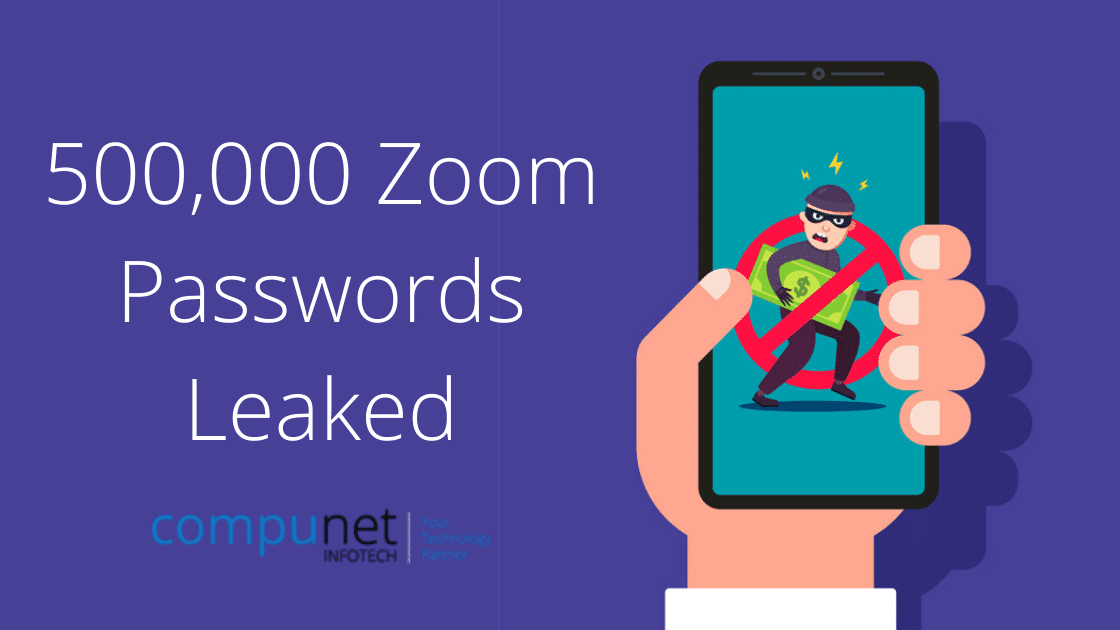500,000 Zoom Passwords Leaked On The Dark Web – Is Your Account Compromised?
As video meeting platforms like Zoom become more popular during the COVID-19 pandemic, they become bigger targets for cybercriminals. Is your Zoom account secure?
The cyber risk assessment firm Cyble has discovered more than half a million stolen Zoom credentials being sold on the Dark Web for almost nothing. The stolen info included usernames, passwords, meeting IDs, and host keys.

Is Your Zoom Account At Risk?
It’s entirely possible – the most vulnerable users are those that haven’t changed their passwords on a regular basis, or that have reused passwords between accounts.
For example, say a site you’ve signed up for and made purchases from, or planned to make purchases from, gets hacked. That login info is then sold on the dark web to cybercriminals. If you happen to repeat your passwords between accounts, one compromised account could compromise many more.
The good news is that there’s a simple way to protect against this – change your passwords on a regular basis. It doesn’t matter if a hacker has an old password from three years ago from that website you don’t use. That is, so long as you don’t use the same password for everything, and also, that you update your passwords.
How Can You Protect Your Accounts?
The key is to make sure you’re updating your passwords, using unique passwords for each account, and making sure they’re strong enough:
- Length and Complexity: Keep in mind that the easier it is for you to remember a password, the easier it’ll be for a hacker to figure it out. That’s why short and simple passwords are so common – users worry about forgetting them, so they make them too easy to remember, which presents an easy target for hackers.
- Numbers, Case, and Symbols: Another factor in the password’s complexity is whether or not it incorporates numbers, cases, and symbols. While it may be easier to remember a password that’s all lower-case letters, it’s important to mix in numbers, capitals, and symbols in order to increase the complexity.
- Pattern and Sequences: Like the other common mistakes, many people use patterns as passwords in order to better remember them, but again, that makes the password really easy to guess. “abc123”, or the first row of letters on the keyboard, “qwerty”, etc., are extremely easy for hackers to guess.
If you’re not repeating passwords, then you won’t be vulnerable to further breaches when a hacker gets your info. But that’s easier said than done, right?
It may be nearly impossible to do on your own, which is why you should use a Password Manager. A password manager generates, keeps track of and retrieves complex and long passwords for you to protect your vital online information.
It also remembers your PINS, credit card numbers and three-digit codes if you choose this option. Plus, it provides answers to security questions for you. All of this is done with strong encryption that makes it difficult for hackers to decipher.
In the end, creating, updating, and managing strong passwords can be frustrating, but it’s incredibly important. Privacy and security are major concerns for personal users and businesses alike these days, and so users have to be sure that they aren’t making it easy for hackers to access their private data.
Like this article? Check out the following blogs to learn more:
Hackers Target Canada Businesses with COVID-19 Spoof Sites
How Law Firms Can Help Their Clients Navigate the Uncertain Legal Waters of COVID-19
A Guide to Staying Fully Operational During the Coronavirus Pandemic




